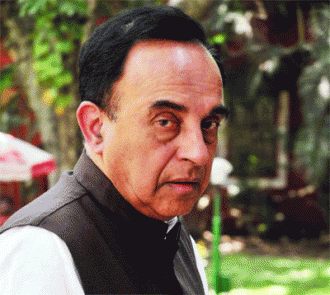
Friday, 28 March 2014 | PTI/PNS | Geneva/New Delhi

‘Intrusive’ UN move undermines national sovereignty and is counterproductive, asserts New Delhi
India for the first time on Thursday abstained from voting on an “intrusive” US-sponsored resolution against Sri Lanka at the UNHRC which adopted it by 23 votes in favour and sought an international inquiry into alleged war crimes in the last stages of conflict with the LTTE in 2009. India along with 11 other countries abstained from voting while 12 other countries, including Russia, China and Pakistan opposed the resolution which was adopted by the UN.
Sri Lankan President Mahinda Rajapakse rejected the resolution saying he would instead press ahead with his own reconciliation plan. Rajapakse said: "This resolution only hurts our reconciliation efforts. It does not help.”
In an explanation of vote by the Permanent Representative of India to the UN Offices in Geneva, Dilip Sinha, said this resolution at the UN Human Rights Council imposes an “intrusive approach” of international investigative mechanism which was counterproductive apart from being “inconsistent and impractical”.
Meanwhile, India’s decision to abstain from US sponsored resolution against Sri Lanka evoked mixed responses on Thursday. While BJP leader Subramanian Swamy welcomed India’s decision, CPI leader D Raja termed the decision as betrayal of foreign policy.
Swamy congratulated Prime Minister Manmohan Singh for India not supporting the US-sponsored UNHRC resolution against Sri Lanka, seeking an international investigation into the “so called” human rights violations during the war against LTTE in 2009.
“I congratulate PM Manmohan Singh for ordering the Indian delegation in UNHRC not to support the dangerous US resolution seeking international probe into the so called human rights violations during 2009 anti-LTTE war by Sri Lanka,” Swamy said in a statement.
“Manmohan Singh has at last shown spine,” later Meanwhile, CPI leader D Raja blamed the Centre for “betrayal” of the foreign policy. “It is another betrayal by the Congress-led UPA Government, which had supported a resolution two years even though it was watered down.
Now with the report of Navi Pillay, UN Human Rights Commissioner, who has demanded investigation into human rights violations and war crimes in Sri Lanka, there is need for a credible probe,” Raja said in his reaction.
This is for the first time since 2009, India has abstained from the voting on the resolution --- ‘Promoting reconciliation, accountability and human rights in Sri Lanka’. All three times --- 2009, 2012 and 2013 --- India voted in favour of the resolutions.
The Permanent Representative of India to the UN Offices in Geneva noted that unlike the resolutions in 2009, 2012 and 2013, this resolution asks the United Nations High Commissioner for Human Rights to “investigate, assess and monitor” the alleged human rights violations in Sri Lanka during the last phases of the war with the Liberation Tigers of Tamil Eelam (LTTE) which was an “intrusive” approach that undermines national sovereignty.
“It has been India’s firm belief that adopting an intrusive approach that undermines national sovereignty and institutions is counterproductive. Any significant departure from the core principle of constructive international dialogue and cooperation has the potential to undermine efforts of Human Rights Council for promoting universal respect for the protection of human rights and fundamental freedoms,” Sinha said.
Moreover, any external investigative mechanism with an open-ended mandate to monitor national processes for protection of human rights in a country, was not reflective of the constructive approach of dialogue and cooperation envisaged by earlier UN General Assembly resolutions, he added.
“As the closest neighbour with thousands of years of relations with Sri Lanka, we cannot remain untouched by developments in that country. Since the end of the armed conflict, India remains engaged in a substantial way in the relief, resettlement, rehabilitation and reconstruction process in Sri Lanka,” the explanation of India’s vote said.
“We have extended substantial assistance to the Government of Sri Lanka in its efforts for resettlement of Internally Displaced Persons, de-mining, education, connectivity, livelihood restoration, economic revival, etc. This has contributed towards return of a modicum of normalcy to the Northern and Eastern provinces of Sri Lanka,” it said.
See more at:
http://www.dailypioneer.com/todays-newspaper/india-abstains-from-lanka-resolution.html




